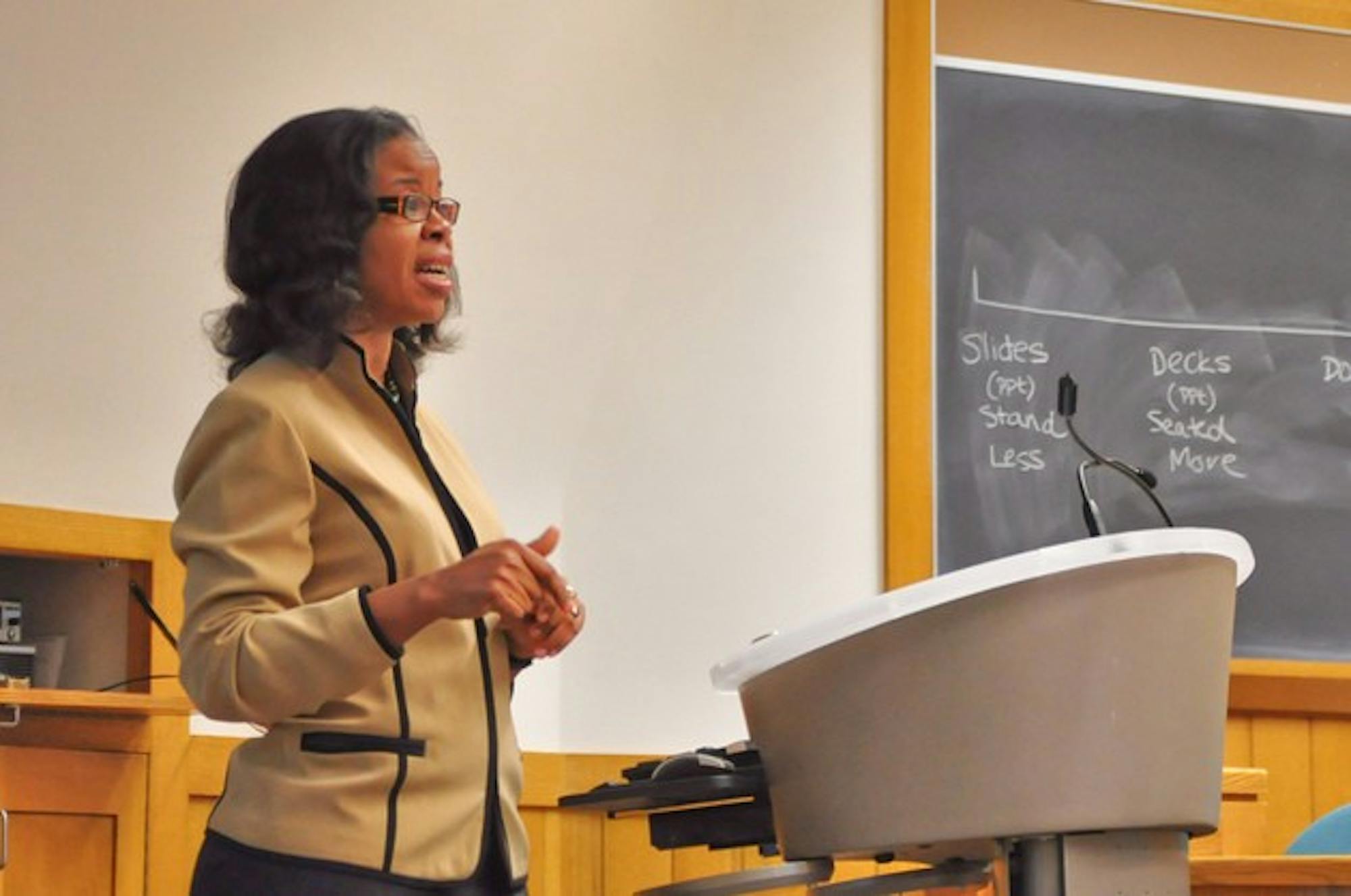"We in Africa need to recognize that rarely a leader is created by nature," Okonedo said. "The reality is that leadership skills need to be nurtured."
Okonedo called for "improved quality of man power" in the next generation to promote the expansion and "de-marginalization" in Africa. The key to producing effective leaders is through education and improving business management training, she said.
"Both re-vamping the quality of formal education and improving informal means of education must be done," Okonedo said. "The development of new leaders is hinged with the development of institutions."
Okonedo contrasted the six years of compulsory education required by law in most African nations to the 10 to 12 required in Western nations as an example of an area where African business education has fallen behind. While leadership training in Africa typically takes place in formal settings at specific university programs, Okonedo said that leadership training must start earlier at the primary and secondary levels of education.
"Africa is still far from being competitive," Okonedo said. "The key challenges we face are in attracting investment, creating policies and finding skilled individuals to lead and manage groups."
Problems facing Africa's business world include corruption and poor management practices, according to Okonedo. She pointed to increased awareness of corporate responsibility as a way to better address those problems.
"When we come to Western business schools and we look at the curriculum, we're not thinking about the context in which the people we are training and developing live and work," Okonedo said. "Business schools in Africa have to emphasize business ethics and incorporate into our curriculum the idea of corporate responsibility."
Okonedo highlighted the justice system in Western nations, absent from African nations, as a detractor of corrupt business practices that slow development.
"The next generation of African leaders need to act not because there is a strong penal system but because they have a strong sense of responsibility," Okonedo said.
African business will also have to address the lack of regional interaction between African nations, according to Okonedo. Currently, different currencies prevent trade among nations from being fluid, she said.
A business school education should include a humanistic education, promoting the advancement of human well-being and dignity, according to Okonedo.
Okonedo became dean of the Lagos Business School in 2009. Okonedo worked in the Nigerian Banking Center as an analyst and unit head in different departments, according to a Tuck School Guest Profile.




